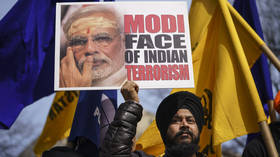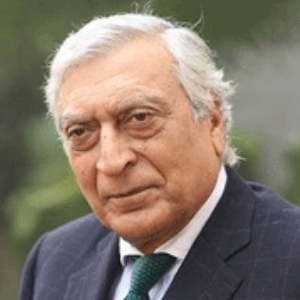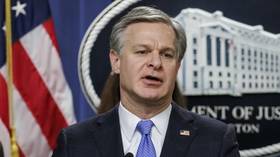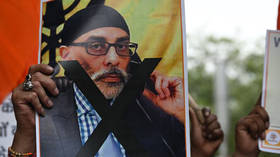Who benefits from blaming India for murder plots in the US and Canada?

The governments of the US and India are under tremendous diplomatic pressure after Washington accused New Delhi of orchestrating a plot to murder US-based Khalistan movement leader Gurpatwant Singh Pannun.
Designated by the Indian government as a terrorist, Pannun is a lawyer in New York, who in 2007 founded Sikhs for Justice (SFJ), an organization that is banned in India, as it advocates for a separate homeland for Sikhs – Khalistan – that would be carved out of the state of Punjab and some neighbouring areas.
The plot was foiled by the US FBI. Last week, the US Department of Justice charged Indian national and drug smuggler Nikhil Gupta of plotting to kill Pannun, who is not directly named in the indictment, at the behest of an Indian official.
The US is taking the case very seriously and has in recent months pressed the Indian government to investigate the matter on its end.
India has set up a high level committee to look into the case. Indian External Affairs Minister Subrahmanyam Jaishankar has stated more than once that if India was provided with specific information, it would act on it, adding that it is not the Indian government’s policy to undertake actions such as this.
Pannun’s saga is unfolding against the backdrop of a similar case – which is, unsurprisingly, mentioned in the FBI investigation.
Canadian-based Sikh separatist leader Hardeep Singh Nijjar, who was also on India’s terrorism list, was murdered in June this year by unknown assailants. Canadian Prime Minister Justin Trudeau alleged in September that Nijjar’s murder had potential links to the Indian government.
Trudeau believed that the allegations were credible and chose to make his sensational accusation on the floor of the Canadian parliament in September, which led to an unprecedented diplomatic spat between the two countries.
New Delhi called the allegations absurd. It also accused Canada of failing to take action against citizens who support the Khalistan movement, which advocates for separatism in India’s Punjab, a very sensitive state bordering Pakistan that has seen a spate of terrorist violence since the 1980s. This is in spite of the fact that these activists have openly advocated for terrorist violence against India and physically threatened Indian diplomats in Canada, as well as senior Indian leaders, including Prime Minister Narendra Modi.
India felt that Canada, including its diplomats in India, were interfering in its internal affairs and forced 41 Canadian diplomats to leave the country.
Notably, the US and Canada have worked closely on the Nijjar case. The evidence to support Trudeau’s allegations, even though it was never shared publicly, was collected with the help of Ottawa’s partners in the Five Eyes intelligence group, which also includes the UK, Australia, and New Zealand. All of these countries have expressed their “concern” and sought India’s cooperation on the Nijjar case.
The White House and the US State Department have asked India publicly to cooperate with the Canadian authorities in their investigation and hold those allegedly responsible in India accountable. Commenting in September on whether Canada’s case could potentially affect US-India relations, US National Security Advisor Jake Sullivan stated bluntly that no country had any special exemption in such matters.
It has now transpired that Washington was well aware of the elements developing in the Pannun murder plot case back in September, when allegations against New Delhi over Nijjar’s case were made public. This explains why US Secretary of State Antony Blinken said at the time that the US was not only cooperating but coordinating with Canada on the Nijjar case.
There is a difference, however, in New Delhi’s reaction to accusations made by Canada and the US. While Ottawa has to date provided no specific information to India on Nijjar’s case that could be pursued on its end, the US has apparently provided specific information on the Pannun case so that India can investigate on its end. This has been stated by India’s Foreign Minister, this time in the Indian parliament. According to an Indian spokesperson, the information that the US has shared involves organized violence, drug smuggling, and terrorism, all of which pose a threat to the security of both countries.
Both the White House spokesperson and Blinken have welcomed the Indian response to US allegations with regards to Pannun’s case. There is a clear desire on both sides to contain the fallout of this case, which explains the White House statement that while they take the Pannun case very seriously, it will not have an impact on the India-US strategic partnership which the US will continue to work to improve and strengthen.
This is borne out by the fact that the India-US 2+2 Dialogue (between the Foreign and Defence Ministers of the two countries) was held on schedule. The Deputy National Security Adviser of the US has just visited India to discuss bilateral ties, particularly the cooperation in critical technologies, even as the Pannun case was raised. New Delhi is also placing the imminent visit of the FBI Director Wray next week in the context of shared security concerns of the two countries. The fact that Pannun has threatened to attack Indian parliament on the eve of the FBI Director’s visit knowing India will raise his case with US suggests that he feels protected and has a sense of immunity.
Nevertheless, while significant interests are at stake on both sides to not allow this case to damage ties, the reality is quite plain. Canada in particular, and the US, not to mention another close ally of theirs, the UK, which has a flourishing Khalistan lobby, have been harboring individuals that New Delhi has declared terrorists – despite India’s extradition requests.
New York-based Pannun, who belongs to the banned Sikhs for Justice organization, has been organizing “referendums” for an independent Khalistan in India, openly supporting separatism, and threatening the Indian prime minister and the external affairs minister.
He publicly threatened to blow up an Air India flight on November 19. Sikh terrorists downed an Air India plane in 1985, killing 329 innocent people. Pannun issued a warning of an attack on Indira Gandhi International Airport New Delhi, as well as the finals of the Cricket World Cup in India. This week, Pannun appeared to issue a new threat – claiming that the Indian government had tried to kill him, he said the response on December 13 would shake “the very foundation” of the Indian parliament. December 13 marks the anniversary of a 2021 terrorist attack on the Indian Parliament building, which killed nine people.
Despite the fact that American Sikh extremists have twice attempted to fire bomb the Indian Consulate in San Francisco, no known action has been taken by the US authorities to curb Pannun’s activities.
This is even more true of Canada, where Khalistani supporters wield political power. Trudeau’s minority government is critically dependent on the New Democratic Party (NDP) party, which is headed by Jagmeet Singh, a known Khalistani sympathizer.
The US, Canada, and the UK claim that they cannot take legal action against Pannun as freedom of speech and the right to peacefully protest cannot be restricted under their laws. This is not an argument that India accepts.
The freedom of speech cannot be used to make terrorist threats and promote separatism in another country. The US, Canada, and the UK are well aware of the history of terrorism and violence in Punjab, and the immense effort to suppress it. They know that cross-border support for terrorism continues and safe havens are given to Sikh terrorist leaders in a neighboring country.
The question therefore arises as to why these countries refuse to take any action against these elements on their own soil that target a friendly country, with which they have a strategic partnership. The first principle of such a partnership should be respecting the sovereignty of the other and non-interference in each other’s internal affairs. The suspicion therefore is that these anti-Indian elements and the cause they espouse is being kept as a pressure point on India by the Deep State.
It is interesting that the Pannun story was first leaked by more than one unidentified source to the Financial Times. Chrystia Freeland, the deputy prime minister of Canada, held editorial positions at the Financial Times in the UK, was the FT correspondent in Moscow, and the managing editor of FT US. She also held an editorial position at the Globe and Mail in Canada, to which the alleged Indian connection with the Nijjar case was leaked before Trudeau made his statement in parliament.
These press leaks seem to have been made to bring out the issue officially in the public domain. Smarting under the actions taken by the Indian government against Canada and to give more credence to Trudeau and his government accused by the opposition of mishandling India in the Nijjar case, it would have seemed to be in the interest of Canada to manipulate the leak to the FT. The dubious role of the intelligence agencies of the Five Eyes in such affairs should not be ignored.
The US Drug Enforcement Agency which is involved in the Pannun story has its own methods of working involving active entrapment. The US Department of Justice is allegedly rather politicized. Many elements in the US media, academic circles, think tanks, human rights organizations, and the ‘progressive’ sections of Democratic Party have been targeting India on democracy, human rights, and minority issues. The narrative is that the Biden administration is ‘soft’ on India and its adherence to US values is suspect.
The Pannun murder plot, an attempt to assassinate a US citizen on American soil allegedly by official Indian elements, would only reinforce that narrative.
While the US has been publicly asking New Delhi to cooperate with Ottawa in its investigation of the Nijjar case, it has never asked Canada to cooperate with India to address the latter’s concerns about extremist and terrorist elements that operate on Canadian soil.
Likewise, while Washington is raising the Pannun case with India, it has never explained why they are giving free rein to individuals who have been declared terrorists by India under its laws. Some in India believe Pannun is a CIA agent.The common sense question would be why India at any official level would undertake such actions on American soil, knowing its political impact on India-US ties, which are becoming increasingly stronger in various domains.
At the end of the day, Pannun is not important enough as a target in the overall scheme of things to take such a risk, as the chances of exposure would be real. India has been suffering from deadly terrorist attacks for decades, including the horrific attack in Mumbai in November 2008 that killed 166 people and injured over 300. But India has not taken out a known terrorist involved in it next door. This is not India’s policy as a law abiding democratic country.
It is regrettable that American, British, and Canadian agencies are working to give an international profile and respectability to terrorists like Pannun. Is the intention by some in these countries to revive a terrorist threat in a part of India where there is virtually no local support, but elements of the Sikh diaspora in the West are active in stirring up trouble.
Where India Meets Russia – We are now on WhatsApp! Follow and share RT India in English and in Hindi
The statements, views and opinions expressed in this column are solely those of the author and do not necessarily represent those of RT.

















